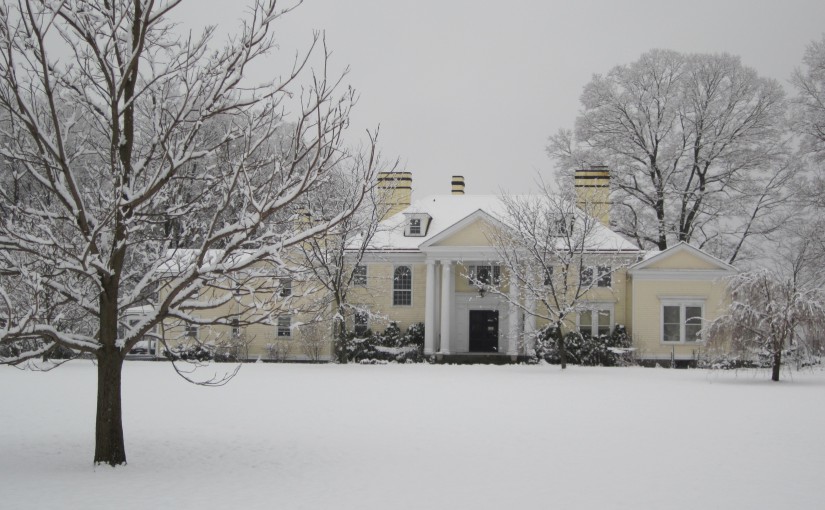Over the stables in an apartment of some four or five bedrooms lived Hollister Sturges, Alberta’s brother (younger than she by two years), and a number of their friends and cousins — all bursting with high spirits. Francis Leggett’s nephew, Theodore Whitmarsh, whom he looked upon as a son, his wife, and their three young children occupied the “Inn” until early September. Housed in the village of Stone Ridge were Maud Stumm, a Miss de Kobel, and a Mr. Goodby, all three of whom came daily, as Miss MacLeod was to write to Mrs. Bull, “to drink deep.”
Other guests no doubt came and went, or, in some cases, stayed on for a week or more. Their names, for the most part, are lost to us; but among those whose visits gave Swamiji particular pleasure were the two McKindley sisters, Isabelle and Harriet, cousins of Mary and Harriet Hale and an inseparable part of that family whom Swamiji loved above all others. (“By the by, Mary,” he was to write in September from Ridgely Manor, “it is curious your family, Mother Church [Mrs. George Hale] and her clergy, both monastic and secular, have made more impression on me than any family I know of. Lord bless you ever and ever.”) Very probably it was through Swami Abhedananda, who was lecturing at the Greenacre School of Comparative Religions in Maine and to whom Swamiji had sent a telegram that the McKindley girls, attending the school, learned of his arrival in America and of his presence at Ridgely Manor. Isabelle, the older sister, wrote to him at the end of August. Swamiji’s reply, not heretofore published, was immediate:
My dear Isabel-
Many thanks for your kind note I will be so so glad to see you. Miss Macleod is going to write you to stop a day and night here on your way to the west.
My love to the holy family in Chicago and hope soon to be able to come west and have great fun. So you are in Greenacre at last. Is this the first year you have been in? How do you like the place? If you see Miss Farmer [Miss Sarah Farmer, the founder of Greenacre] of course kindly convey her my kindest regards and to all the rest of my friends there.
Ever yours affly
Vivekananda
Miss MacLeod sent off an invitation to the two girls on the same day. Her letter, interesting, I believe, for its directions and time tables, read:
August 31, 1899
My dear Miss McKinley–
Your letter this morning was a great pleasure to our household. We should be so pleased if you and your sister will stop over with us a day and night on your way home–If you will let me know the date, I will arrange to have a free place for you and to meet you at the Station Binnewater: four miles off. You can take a train at Boston for Kingston–changing at Albany–and at Kingston take a train to Binnewater–I think the best train leaving Boston is at 11 P.M. Of course if you are in or near New York–we are very accessible, being 3 hours by train from there.
If you have never taken the [boat] trip on the Hudson River, it is well worth the day given to it–leaving New York at 9–to Kingston–arriving at Binnewater at 4:30.
Swamiji is delighted at the thought of seeing you and your sister.
He was indeed. “I am dying to see Isabel and Harriet,” he wrote to Mary Hale. But for one reason or another, the two girls were long in coming. Swami Abhedananda arrived at Swamiji’s call two weeks before them, as attested by his diary. His entry for September 8 reads:
Arrived at Kingston at 7:30 P.M.–drove to Ridgely and arrived there at 9:30 P.M. Saw Swamis V. and T. and lived with them.
Burke, Marie Louise. “Ridgely: The Great Summer,” in Swami Vivekananda in the West: New Discoveries, A New Gospel, vol. 5, chap. 3. (Mayavati, India: Advaita Ashrama, 1987), 107–143. Reprinted by permission from Advaita Ashrama.
